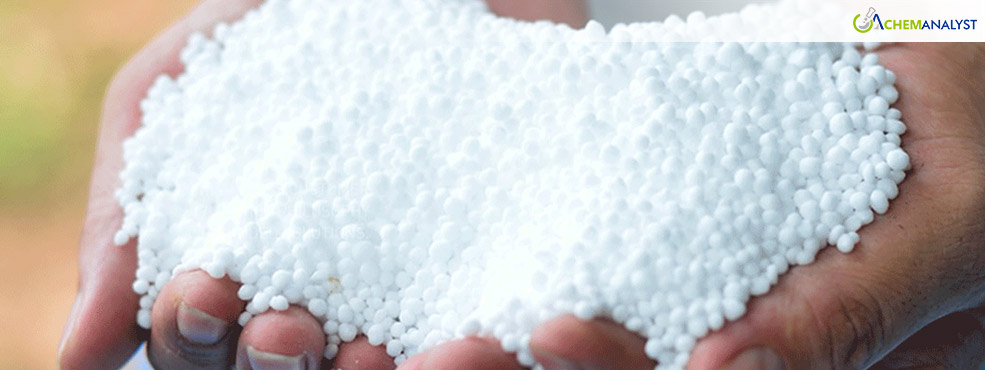Welcome To ChemAnalyst

Nigeria's official fertiliser consumption reached 1,642,476 metric tonnes last year, reflecting a recovery from a previous decline, according to the Fertiliser statistics provider Africa Fertiliser reports. In 2022, consumption had dropped by 560,801 metric tonnes to 1,298,505, compared to 1,859,306 in 2021.
The Africa Fertiliser Watch monitors trends across over 16 sub-Saharan countries, analysing the impact of global fertiliser prices, limited supplier inventory, and affordability for farmers. Of the 2023 figures, notable quantities included 312,355 metric tonnes of ammonium sulphate, 120,423 of diammonium phosphate, 112,182 of muriate of potash, 14,900 of single super phosphate, 1,082,467 of urea, and smaller amounts of enhancers and organic fertiliser.
Total fertiliser consumption in Nigeria was significantly lower in 2022, with ammonium sulphate at 188,740 metric tonnes, diammonium phosphate at 118,678, muriate of potash at 34,996, and urea at 959,980. This marks a shift from 2021, where urea consumption was notably higher at 303,423 metric tonnes.
Joyce Onyegbula from the Nigeria Sovereign Investment Authority (NSIA) highlighted that the Presidential Fertiliser Initiative (PFI) has effectively addressed inefficiencies within Nigeria's fertiliser sector. The initiative has facilitated the establishment of 84 blending plants across the country’s six geopolitical zones, creating over 100,000 direct and indirect jobs and generating more than $200 million in foreign exchange savings. The PFI has also eliminated fertiliser subsidies, resulting in annual fiscal savings exceeding N60 billion.
To date, the initiative has successfully delivered 90 million bags of locally blended high-quality fertiliser to farmers, contributing significantly to agricultural productivity.
On a broader scale, AfricaFertiliser noted that average fertiliser usage across Africa has increased from 8.0 kg per hectare in 2006 to a peak of 42.5 kg per hectare in 2019, before declining to 34.5 kg per hectare in 2022.
The Abuja Declaration established kg per hectare as a key indicator for tracking progress in the fertiliser sector across African Union Commission member states. This metric provides insight into a country's fertiliser usage, its impact on soil health, and agricultural productivity.
AfricaFertiliser, along with its partners, has announced the 2024 Fertiliser Technical Working Group (FTWG) meetings to engage key national fertiliser supply chain stakeholders across 18 African countries. These meetings aim to share, analyse, and validate 2023 national fertiliser statistics and other critical information to support informed business and policy decisions.
Sebastian Nduva, lead at AfricaFertiliser, emphasized the collaborative effort with partners such as Development Gateway, the International Fertiliser Association (IFA), and the West African Fertiliser Association (WAFA) to illuminate fertiliser markets in Africa. The initiative aims to expand its geographical coverage, providing industry stakeholders with essential tools for strategic planning to enhance food systems across the continent.
We use cookies to deliver the best possible experience on our website. To learn more, visit our Privacy Policy. By continuing to use this site or by closing this box, you consent to our use of cookies. More info.
